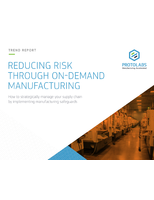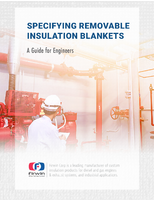White Paper covers manufacturing transformation strategies.
Press Release Summary:
MESA's White Paper No. 38 was produced as part of MESA/ISA-95 Best Practices Working Group through international peer review process involving 5 or more subject matter reviewers. Paper details the building of a Manufacturing Transformation Strategy by combining a Manufacturing Maturity Model supporting transformation strategy, and the ISA-95 methods mapped against this Maturity Model to support the Manufacturing Operations Management System and Continuous Improvement Roadmap.
Original Press Release:
MESA Announces the Publishing of White Paper #38: Building a Manufacturing Transformation Strategy with ISA-95 Methods
Chandler, AZ - Industrial companies traditionally view manufacturing cost reduction as only a labor cost issue. It is not even the largest cost. Significant cost reduction is a matter of effective work processes across plants and supply chain operations for normal and abnormal operating states. The real solution for effective work processes requires simultaneous changes in organization structure, operations processes, and employee skill sets all of which are enabled by manufacturing operations management system (MOM) technologies. Many manufacturers attempt Continuous Improvement (CI) initiatives without an aligned MOM system strategy and fail. Many manufacturers attempt MOM systems without an aligned CI initiative and fail. As a result, a new global industrial revolution has begun based on how to optimize manufacturing plants by combining CI methods with an adaptive MOM system architecture put into place using a Manufacturing Transformation Strategy.
Successful optimization centers on prevention of production issues in the design by characterizing operations work processes through Lean and Six Sigma methods. Based on the resulting user and system functional requirements, a MOM System Roadmap is derived including risks and a tangible return on investment (ROI) identified for each project. However, when the MOM System Roadmap lacks cultural transformation requirements for each system, the system projects fail.
Non-value-added operations costs are caused by poor MOM system planning and governance. Isolated MOM systems, while solving specific issues, ultimately result in high operations costs due a fragmented, constrained architecture and MOM master data. The unplanned discovery /correction of system design errors increase costs throughout operations characterization and optimization activities. These additional passed-on costs from inadequate system design and governance range between 100 and 300 times more expensive than determining requirements and architecture through a manufacturing transformation assessment.
The paper details the building of a Manufacturing Transformation Strategy by combining two frameworks:
o A Manufacturing Maturity Model supporting the transformation strategy
o The ISA-95 methods mapped against this Maturity Model to support the MOM System and CI Roadmap
Corrective actions and each project ROI incorporate required change to organization structure, process, personnel and technology.This paper was produced as part of the MESA/ISA-95 Best Practices Working Group through an international peer review process involving 5 or more subject matter reviewers. This MESA White Paper will also be published in the methodology best practices collection, Book 2.0, When Worlds Collide in Manufacturing Operations (Collections published by ISA, 1/1/11).
This white paper is available at: services.mesa.org/ResourceLibrary/ShowResource/fb22c0e4-321b-4e28-8314-95a2919ad53b. All of MESA's white papers are available at www.mesa.org for $25.00 per paper for individual papers, or become a MESA premium member and have complimentary access to over 250 white papers, presentations, MOM/MES guidebooks, industry studies and web casts.
MESA International is a global community of manufacturers, producers, industry leaders and solution providers who are focused on improving Operations Management capabilities through the effective application of technology solutions and best practices. We accomplish this through the following:
o Collect, share and publish best practices and guidance to drive greater productivity and the overall profitability of the manufacturing enterprise
o Facilitate innovation and collaboration to enable the real-time enterprise and Plant to Enterprise (P2E) integration
o Enable members to connect, contribute, cultivate understanding, and exchange strategies to drive operations excellence




